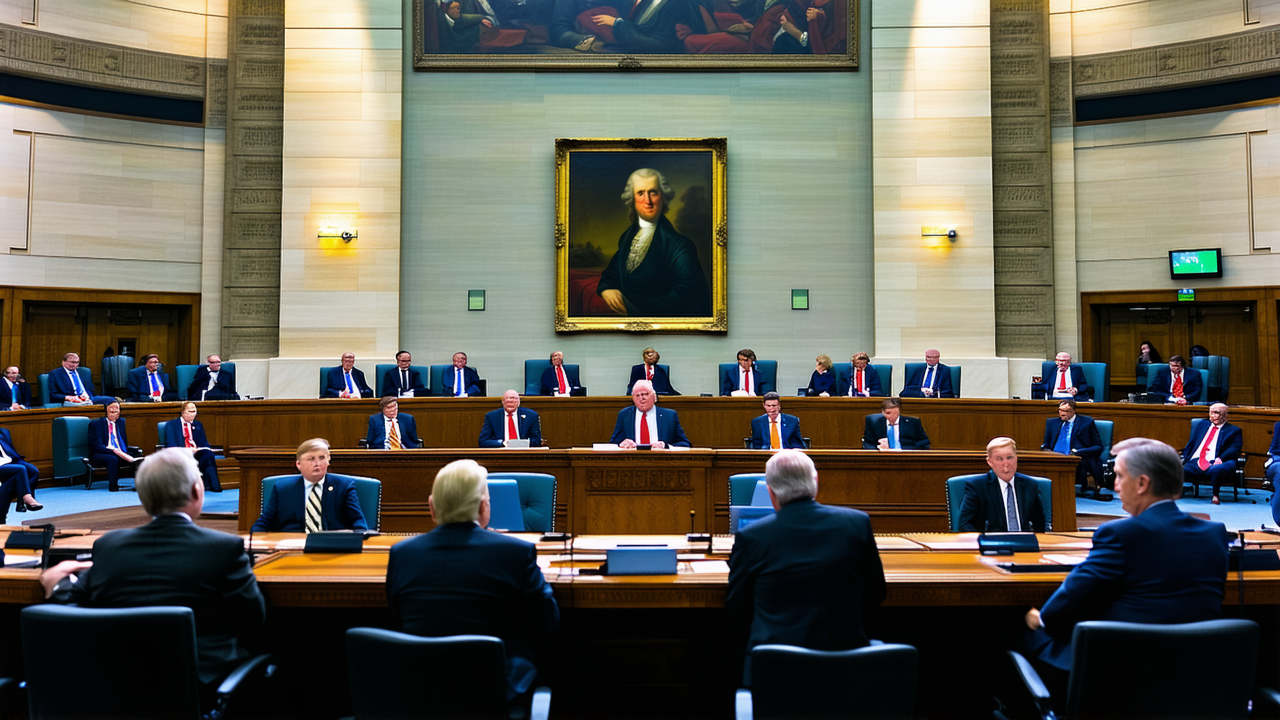Coalition Parties Urge Opposition to Avoid Reinstating Oil and Gas Exploration Ban
Coalition Parties Urge Opposition to Avoid Reinstating Oil and Gas Exploration Ban
Updated: 6 minutes ago
In a recent development, coalition parties in New Zealand have made a strong appeal to the opposition to avoid reinstating the 2018 ban on oil and gas exploration. This move comes as part of an effort to foster greater political consensus around the energy sector, which they believe is crucial for revitalizing the industry and ensuring energy security. However, their calls appear to be met with resistance from the opposition, which has pledged to restore the ban if it gains power in the future.
The legislation to repeal the 2018 ban was passed through Parliament late Thursday night, with the support of National, ACT, and New Zealand First. Labour, the Greens, and Te Pāti Māori have all indicated their intention to reinstate the ban should they return to power. This stance raises concerns about the potential impact on oil and gas companies considering investments in New Zealand, particularly in the exploration of new wells.
New Zealand First’s Shane Jones has been a key figure in the push to repeal the ban. Interestingly, Jones was one of the original proponents of the 2018 ban alongside former Prime Minister Jacinda Ardern. However, following the passage of the bill, Winston Peters, the leader of New Zealand First, dismissed official reports estimating the cost of the ban at up to $8 billion as “flimsy.” He also emphasized the environmental benefits of reducing fossil fuel use.
Shane Jones, in a statement, argued that the ban had led to a shortage in domestic gas supply and deterred investment in new exploration projects. He claimed that the ban has resulted in energy insecurity, with businesses closing and jobs being lost in regional areas. To address these issues, Jones highlighted the need for legislation that encourages investment and ensures energy affordability.
Simon Watts, the Energy and Climate Change Minister from the National Party, defended the repeal by stating that the opposition’s argument that reversing the ban would not yield new gas for a decade is a “distraction.” He emphasized that the immediate signal sent to investors is crucial, encouraging long-term exploration and maximizing production from existing fields.
On the other hand, Megan Woods from the Labour Party pointed out that record investment was made in existing fields after 2018, contradicting the claim that the ban had a chilling effect on investment. She also highlighted that billions of dollars had already been spent searching for oil off the East Coast of the South Island without success. Woods warned that reversing the ban could lead to increased emissions and potential trade risks, citing an analysis from the Ministry of Foreign Affairs and Trade.
Green Party spokesperson Steve Abel expressed skepticism about the ability of the oil industry to return to New Zealand. He listed several major oil companies that had already exited the country before the 2018 ban was enacted, suggesting that the ban was the “final nail in the coffin” of an industry that had already lost interest due to lack of commercial finds and public opposition.
Echelon Resources, a company formerly known as New Zealand Oil and Gas, warned that new drilling would be more difficult and expensive, as the best wells are typically drilled first. The company’s managing director, Andrew Jeffries, also noted that the lack of political consensus in New Zealand makes the country less attractive for investment compared to other nations.
ACT Party MP Simon Court emphasized that the repeal of the ban would restore certainty and confidence in the energy sector. However, he urged Labour not to reinstate the ban if it were to return to power. He criticized the previous Labour government for its “economic vandalism” in the energy sector and expressed disappointment that the party had not changed its stance.
David Seymour, the leader of the ACT Party, acknowledged that it was possible the oil and gas industry might not find new reserves. However, he argued that the government should not be an impediment to cheaper energy and called on Labour to reconsider its position if New Zealand First were to change its stance.
The debate over the ban continues to highlight the tension between energy security and environmental sustainability. As the country moves toward a clean-energy transition, the role of natural gas in ensuring energy stability remains a contentious issue. With the current legislative changes, the future of oil and gas exploration in New Zealand remains uncertain, and the political landscape will likely play a significant role in shaping the industry’s trajectory.
